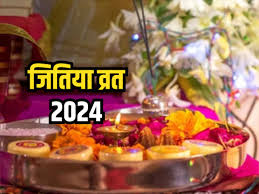Mother will keep Nirjala Jivitputrika fast for the long life of her son, know what is the method of worship and auspicious time…
New Delhi:- In Hinduism, fasts and festivals are celebrated throughout the year. The tradition of celebrating all the fasts and festivals is different. Also, the religious significance and beliefs of all the festivals are also different. One of these is Jitiya festival, which is also called Jivitputrika. This festival is mainly popular in the areas of Bihar, Jharkhand, Uttar Pradesh, Nepal. In Jitiya, mothers keep a waterless fast for the better health, happy life and long life of their sons. According to the beliefs of Hinduism, Jitiya fast is kept during Jeetmutvahan Pradosh period. In this, Lord Jimutvahan is worshipped.
When is Jitiya fasting
According to the Hindu calendar, Jitiya fast starts from Ashtami Tithi of Krishna Paksha of Ashwin month and ends on Navami Tithi. According to Drik Panchang, Ashtami Tithi of Krishna Paksha of Ashwin month is starting from 12:38 pm on Tuesday. It will end on Wednesday at 12:10 pm. Udaya Tithi is considered in Hinduism. For this reason, women will observe Nirjala fast day and night on Wednesday. In this fast, a basket is filled. Seasonal fruits, dry fruits, sweets are kept in the basket. At many places, women take a bath in the Ganges before the fast.
When is Jitiya Vrat 2024
Jitiya fast will start on Tuesday with Nahai-Khai.
Nirjala fast will be observed on Wednesday.
The fast will conclude with Parana on Thursday.
Ashtami date according to Drik Panchang
Ashtami Tithi starts – 24 September 2024 at 12:38 pm
End of Ashtami Tithi – 25 September 2024 at 12:10 pm
Lord Krishna brought Arjun's grandson back to life
Jiutiya Vrat is related to the Mahabharata period. According to the popular legend, Arjun killed all the sons of the Pandavas and even Abhimanyu's unborn son in his sleep. After this, Lord Krishna performed a miracle by bringing Arjun's grandson back to life with his divine power. Due to this, the child was named Jivitputrika after birth. On the basis of this religious belief, mothers observe this fast for the long life of their son. In this fast, there is a practice of eating and drinking something before sunrise on the day of fasting.
Tradition of eating noni saag
It is believed that before fasting, many types of vegetables are cooked as food. There is a tradition of giving priority to noni saag. It is scientifically believed that calcium and iron are found in abundance in this vegetable. This vegetable is helpful in keeping women healthy during fasting. That means the nutrients in the body of the fasting people remain balanced.
There is a tradition of offering mustard oil and husk
After the Parana in Jiutiya, the devotees put a locket in a red thread and wear it around their neck. Some people also wear a gold or silver chain instead. During the puja, mustard oil and oilcake are offered in the water source. After the Parana, the devotees apply oil on the head of their children as a blessing of Lord Jimutvahan.
Post Views: 90


Comments are closed.